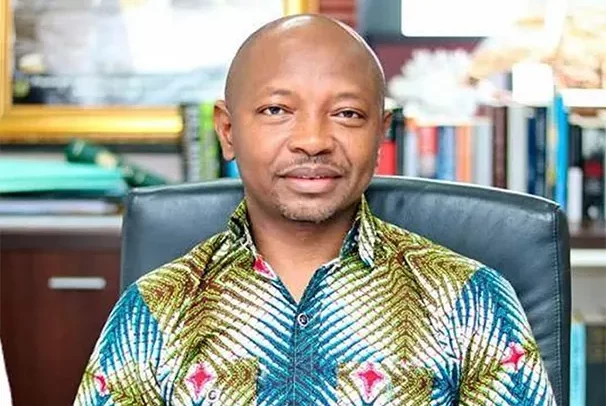Ras Mubarak
Former Member of Parliament for Kumbungu in the Northern Region, Ras Mubarak is advocating for the closing of 22 of Ghana’s diplomatic missions (embassies) abroad.
They include Algeria, Austria, Benin, Burkina Faso, Congo, Czech Republic, Equatorial Guinea, Guinea, Israel and Cote d’Ivoire.
The rest are Kuwait, Liberia, Libya, Malta, Namibia, Norway, Niger, Rwanda, Serbia, Sierra Leone, Trinidad & Tobago and United Arab Emirates.
In an open letter addressed to President John Mahama, Ras Mubarak stressed the belief that “in an era where even the richest countries are struggling to meet the most pressing needs of their people, we, a developing country, cannot afford to spend beyond our means” and that “difficult and painful decisions ought to be made to give the Ghanaian people the dignity they deserve.”
Justification
His reasons for the closure of the embassies include the low trade volumes emanating from these missions and their respective countries.
“Many of these countries do not have significant trade relationships with Ghana, making the maintenance of diplomatic missions less critical,” he noted.
He also wrote about the issue of limited diplomatic engagement between those countries and Ghana, insisting that “some of these missions are not actively engaged in substantial diplomatic activities that benefit Ghana’s national interests.”
Apart from that, the former MP also raised the issue of cost savings.
That, he said, was because “maintaining diplomatic missions is very costly” and that “the cost of maintaining embassies in the above countries cost the Ghanaian taxpayer several millions of dollars yearly.”
Even though a handful of Chancery buildings in places like Namibia were given to Ghana for free, Ras Mubarak indicated that “there are other costs that make no economic sense,” insisting “we can’t keep paying for high rent costs while kids in schools up and down the country sit on the floor,” and that “keeping these embassies cannot be justified when clinics in rural Ghana are an eyesore.”
“By scrapping these missions, Ghana can save on operational costs, including rent, utilities, salaries, and other expenses,” he added.
In his opinion, “the cost savings from scrapping these diplomatic missions and embassies can be substantial. Based on average costs, estimate savings range in the hundreds of millions dollars annually.”
For him, these funds can be redirected to more pressing areas such as healthcare where “we have to improve our healthcare infrastructure, funding medical research, and enhancing access to quality healthcare for all Ghanaians.”
He also talks about investing in educational facilities, teacher training programmes, and scholarships to improve the quality of education and increase access to education for disadvantaged groups.
The former MP also highlighted developing critical infrastructure projects such as roads, bridges, and public transportation systems to support economic growth and improve the quality of life for citizens.
According to Ras Mubarak, some of these resources can also be channeled into housing since “the concept of basic human needs are food, clothing and shelter.”
“Our countrymen and women need affordable homes. Shelter, like food and clothing is so fundamental to human survival and wellbeing. Implementing affordable housing projects to address the housing deficit and provide decent living conditions for low and middle-income earners,” he emphasised.
Whilst he admits that critics of his proposal may raise issue with job losses, he insist there will be little or no Ghanaian job losses.
That, he said, was because “staff from the scrapped missions and embassies can be redeployed to more critical diplomatic missions where Ghana’s interests are more substantial.
“This will not only optimise the use of human resources but also ensure that our diplomatic efforts are focused on areas that yield the greatest benefits for the country.”
According to Ras Mubarak, “the 21st century requires for governments and public institutions to be smaller, without compromising efficiency. A typical example would be what Australia, a country so advanced and prosperous than Ghana is doing. Ms. Owen-Jones, the Australian High Commissioner oversees her country’s diplomatic relations in Burkina Faso, Cote d’Ivoire, Guinea, Liberia, Mali, Senegal, Sierra Leone and Togo. That is prudence. Even with bigger embassies in places like London and Washington, we can downsize without compromising efficiency.”
He thus noted that “an economically struggling country cannot justify keeping an embassy in Prague and Vienna when the Ambassador in Berlin can easily have additional responsibilities of overseeing not just Prague and Vienna, but The Hague, and Copenhagen.”
Instead, he insisted that “what Ghana may need in these countries I have suggested, should the proposal be acceptable to your government, is for the appointment of Consul Generals in these countries. Where we have much diplomatic and economic activities, the ambassadors should be given additional responsibilities to oversee areas with little activity.”
“Given the current economic challenges facing our country, it is imperative that we adopt prudent measures to manage our resources effectively in order to meet the critical and urgent challenges in health, education, infrastructure, housing, security and so on,” he stated, whilst noting with emphasis, “with prudent management and strategic decision-making, Ghana can navigate its economic challenges and achieve sustainable development.”
By Charles Takyi-Boadu


